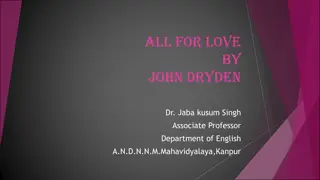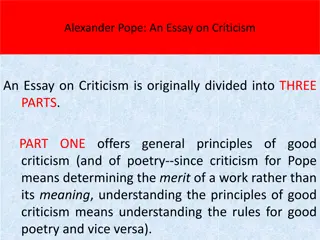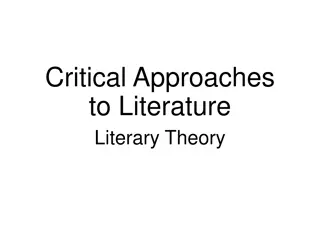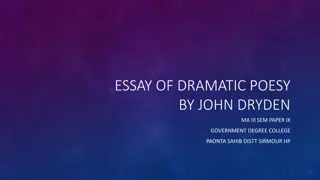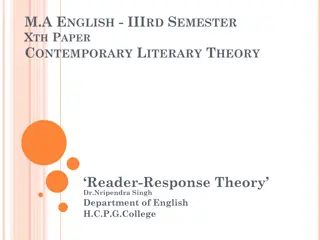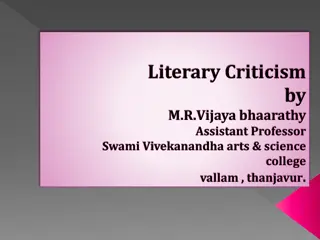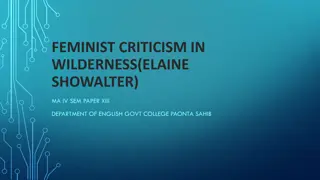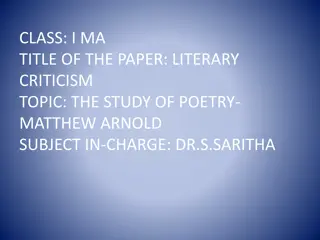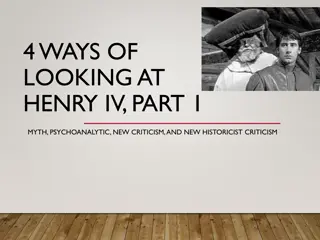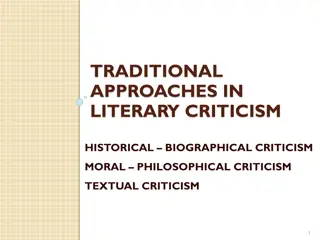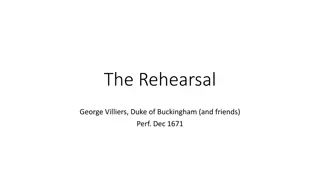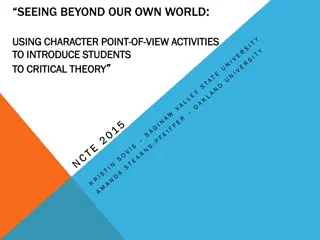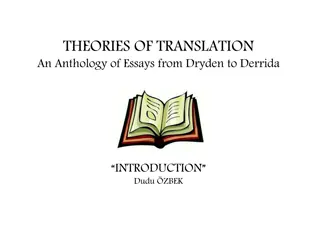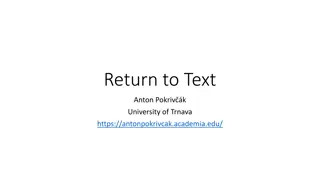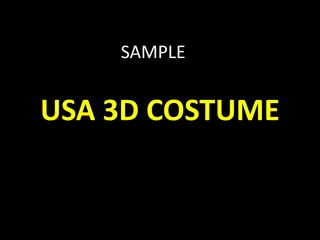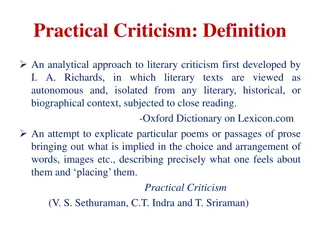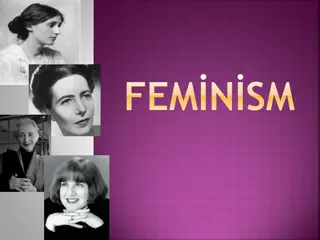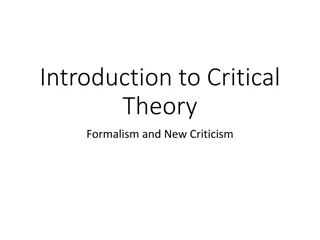John Dryden's Literary Criticism and Works
A look into the literary criticism and works of John Dryden, focusing on his formal treatises, advocacy of the heroic couplet, defense of rhymed couplets in tragedy, and discussions on poetry and painting. Dryden's writings encompass a variety of genres and styles, from dramatic criticism to epic poetry, showcasing his contribution to English literature.
Download Presentation

Please find below an Image/Link to download the presentation.
The content on the website is provided AS IS for your information and personal use only. It may not be sold, licensed, or shared on other websites without obtaining consent from the author.If you encounter any issues during the download, it is possible that the publisher has removed the file from their server.
You are allowed to download the files provided on this website for personal or commercial use, subject to the condition that they are used lawfully. All files are the property of their respective owners.
The content on the website is provided AS IS for your information and personal use only. It may not be sold, licensed, or shared on other websites without obtaining consent from the author.
E N D
Presentation Transcript
A.Sumaya Banu Assistant professor of English H.K.R.H College Literary Criticism - I John Dryden
An Essay on Dramatic Poesy- Formal treatise on criticism Learnt manner of critical writings- French-Montaigne and Corneille-suited his temperament for more reason. Essay of Dramatic poesy, Epistle Dedicatory of the Rival Ladies- advocating the use of heroic couplet for dramatic purpose.
Dedication to Annus Mirabilis- four line stanza with alternative rhyme to the heroic couplet for heroic verse. Essay of Dramatic poesy, A Defence of an Essay of Dramatic Poesy, Indian Emperor defend the use of rhymed couplet in tragedy.
The Grounds of criticism in Tragedy, prefixed to Troilus & Cressida containing an exposition of Aristotle s theory of tragedy and an examination of an exposition of Shakespeare & Fletcher A Discourse concerning the original and progress of satire prefixed to the translation of The Satires of Fuvenal
A Parallel of poetry & painting prefixed to the translation of Du Fresnoy s Latin poem De Arle Graphica Dedication of the Aeneis, prefixed to the translation of Virgil s work discussing epic poetry with particular reference to Virgil Preface to the Fables - appreciation of Chaucer
Drydens criticism-thought of nature, function of poetry, its form, business of criticism & masters who interested him. He gave new turn to English criticism-combines merits of both native tradition & classical
Dryden uphold Aristotles Definition of poetry as a process of imitation. It imitates what was or is( fact, past or present) what is said or thought to be( popular beliefs & superstitious) and what ought to be( things in their ideal form) Generally accepted view of poetry in his day-fact, past or present.
Dryden take pains to emphasize the other two forms of imitation in Aristotle s definition. The Ground of Criticism in Tragedy -poet to imitate things as they are said or thought to be He defends Shakespeare s use of the supernatural, founded on popular belief.
Dryden gives his own explanation of why imitation pleases. As truth , he says is the end of all our speculations, so the discovery of it is the pleasure of them. Nature gives as pleasure, lively imitation of its either in poetry or painting
The poet in his day did not unburden his soul only to himself. Scott James says No Art for Art s Sake. Plato had wanted poetry to instruct, Aristotle to delight, Horace to do both and Longinus to transpor
Dryden familiar with them all- conclude-final end of poetry was delight and transport rather than instruction and to realize it-did not imitate life but offered its own version of it-`a beautiful resemblance of the whole (A Defence of an Essay of Dramatic Poesy)
According to Dryden poet is neither a teacher nor a bare imitator - a photographer - but a creator - life or Nature as his raw material a work of art rather than a copy. Aristotle also meant the same replying to Plato`s objection that poetry gave a copy of copy, he said that the truths of poetry were not be confounded with the truth of life. Dryden feels the necessity of fancy or what Coleridge calls the shaping spirit of imagination s


